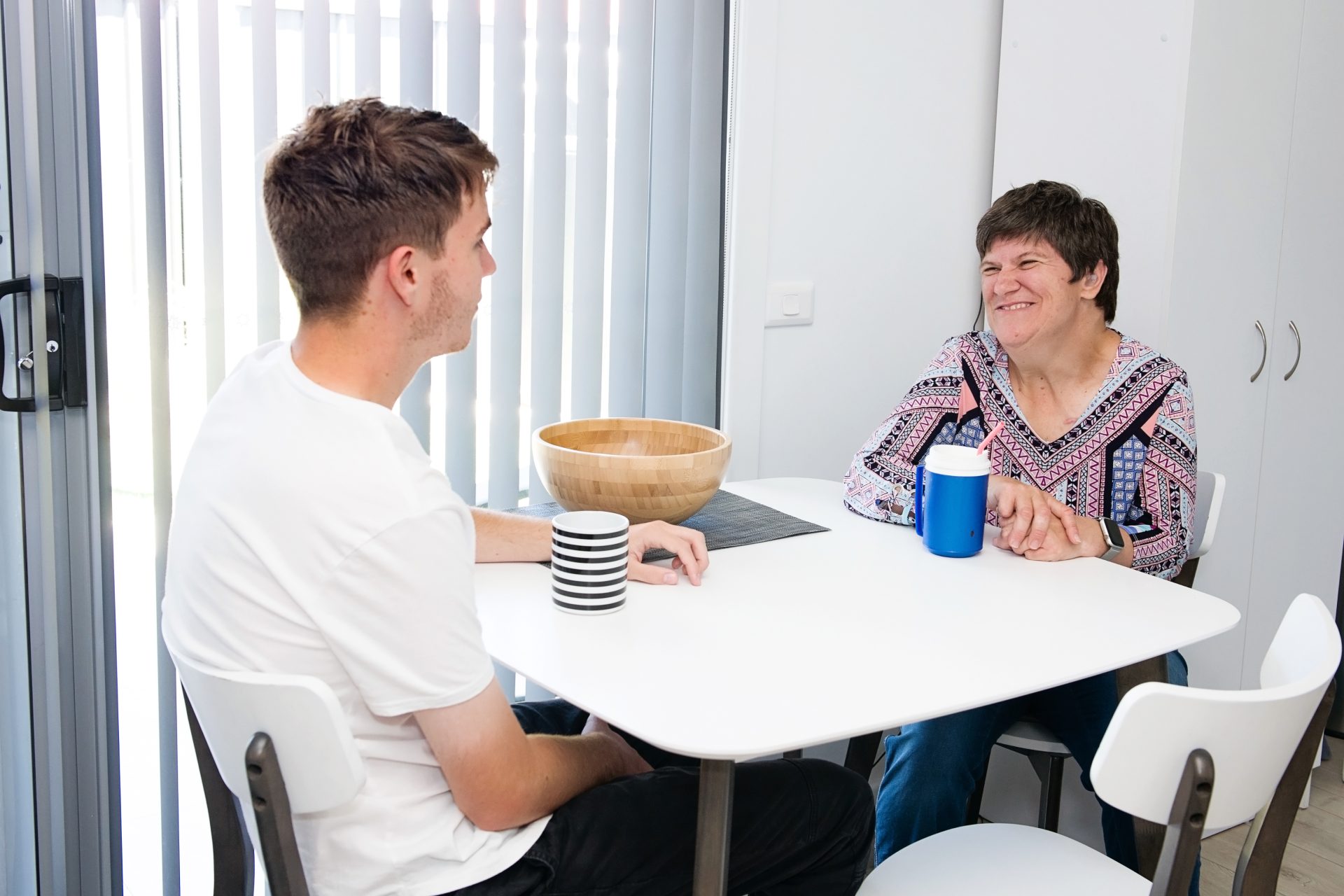Top tips for effective communication

Effective communication is essential for building understanding and relationships. It involves both expressing yourself clearly and understanding others, regardless of any communication difficulties there may be.
According to Speech Pathology Australia one in 7 Australians will have communication difficulties as some stage in their life. During Speech Pathology Week, running from 20-26 August 2023 there’s a focus on the work done by speech pathologists and the different ways they can help people.
It is not always obvious that someone is having trouble expressing themselves. Here are some tips for successful communication, especially when interacting with someone who has communication difficulties:
- Be kind: Always be nice to people and treat them with respect.
- Welcoming and friendly: Create a warm and inviting atmosphere to help the other person feel comfortable during the interaction.
- Varied communication methods: understand that there are different ways for people to communicate beyond just speech, like using sign language, assistive devices, or gestures.
- Ask: Check in with the person you’re talking with and ask them how to best communicate with them.
- Choose a suitable environment: Avoid noisy locations and look for a quiet place with limited distractions.
- Active listening: Pay attention when a person speaks and use both verbal and nonverbal cues to show you are listening.
- Say if you’re unsure: If you’re having trouble understanding what’s being said, politely let the other person know and ask them to clarify.
- Try again: If the other person doesn’t understand what you’re saying, try rephrasing or say it another way.
- Yes or No questions: If the person you’re speaking with is confused or doesn’t understand what you’re saying, consider asking questions they can say “yes” or “no” to.
- Confirm understanding: After conveying your message, verify with the person that you’ve understood them correctly to avoid miscommunication.
- Give time for response: When asking questions, wait for the person to respond, allowing them enough time to find their words and form a reply.
- Be patient: Sometimes it takes time for someone to talk or respond, so wait calmly and don’t rush them.
- Look and talk: Address the person directly and look at the person you’re speaking to. But be mindful that some people are uncomfortable with that so it’s important to respect that.
- Speak normally: Talk like you normally do, there’s usually no need to raise your voice or talk slow unless the person asks you to.
These simple tips can help you talk better and understand each other, no matter how someone communicates.